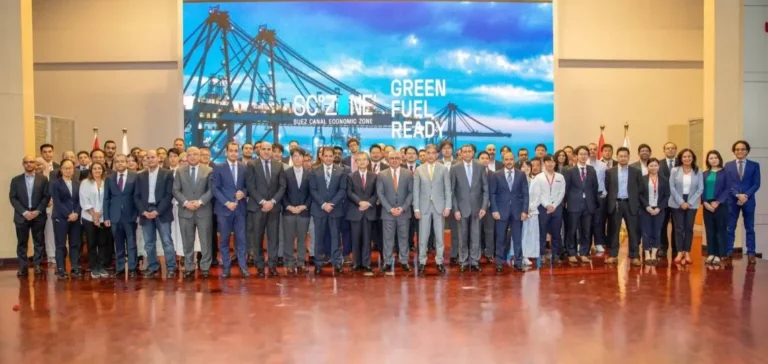Chairman of the General Authority of the Suez Canal Economic Zone (SCZONE), Waleid Gamal El-Dien, held a series of meetings with Japanese corporate leaders in Tokyo to promote investment opportunities in the Suez Canal Economic Zone. The visit is part of the authority’s strategy to position the zone as a regional industrial and logistics hub in energy and manufacturing sectors.
Towards a Japanese industrial zone within SCZONE
Gamal El-Dien met with the Techno Park Division team of Toyota Tsusho Corporation. Discussions focused on the development of industrial zones, logistics services, and a proposal to establish a Japanese industrial zone operating under the industrial developer system. This model would enable Japanese companies to benefit from a specific regulatory environment within SCZONE.
The meeting also explored areas of cooperation in green manufacturing, advanced technologies, and smart zone management. Toyota Tsusho and SCZONE are already working together on the soon-to-open roll-on/roll-off (RORO) terminal at East Port Said Port.
Joint projects in agri-food and cold chain logistics
The SCZONE chairman also met with senior executives from Zensho Holding Corporation, a Japanese conglomerate involved in food processing, logistics, and restaurant operations. Discussions focused on establishing joint industrial projects in food processing, packaging, and storage.
These initiatives aim to enhance localised supply chains and support exports to regional and global markets by leveraging SCZONE’s integrated infrastructure.
Suez Canal positioned as regional green fuel hub
As part of his participation in the Hydrogen Energy Conference for Action (HENCA 2025), Gamal El-Dien outlined the zone’s ambitions in alternative fuel industries. He highlighted the site’s logistical advantages and its access to two maritime fronts as key assets to attract green fuel production and export stakeholders.
During the conference’s opening session, he met with Tokyo Governor Yuriko Koike to discuss potential institutional cooperation on energy policy.






















